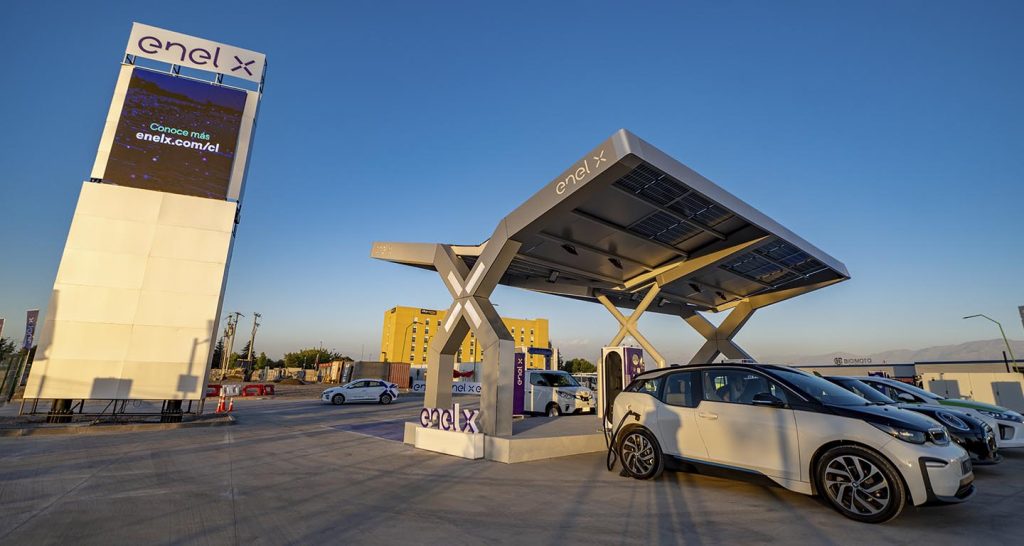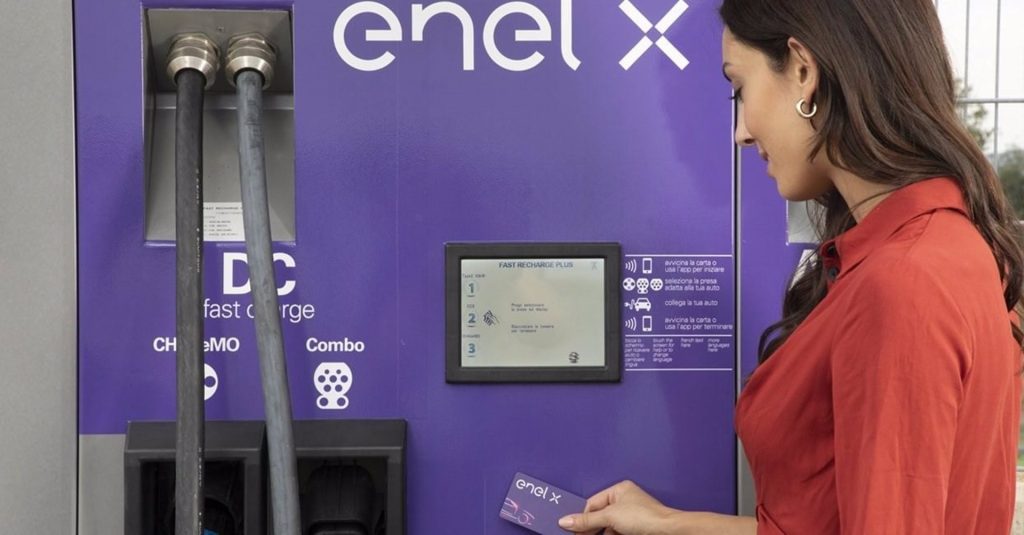
Enel X Webinar: Experts Highlighted Advances and Challenges of Public Transport Electrification in Latin America

The electrification of transportation in Latin America is experiencing accelerated growth, with Colombia, Chile and Mexico as the leading countries in the region.
One of the key players in the boom and the energy transition of fleets is Enel X Way, a company that, with large investments and public-private partnerships, continues to consolidate its position in the Latin American market.
In this sense, the electromobility division of the Italian group organized the webinar “The electrification of public transport in Latin America”.
The meeting, which took place in virtual format, evaluated the benefits in terms of efficiency, costs and environment of the substitution of units towards electric mobility, focusing on success stories and projects in Chile, Colombia and Mexico.
Related content: Enel X Way Leads Alliance to Introduce the Largest Charging Center in Latin America
Current Events in Colombia
To present the current situation in Colombia, the meeting was attended by Esteban Duque, Head of Business Development for Electric Buses Enel X Colombia.
He emphasized that due to the incentives and legislation approved by the government, in a joint effort with private enterprise, the country has positioned itself as one of the leaders in Latin America in mass electric mobility.
Duque revealed that efforts are being made since approximately 2019, specifically with the Law for the Promotion of Electric Vehicles, was key for the energy transition of the transportation sector.
Together with the regulation, he also highlighted the publication of the National Strategy for Electric Mobility for large goals towards 2030, where they aspire to have 600,000 electric vehicles.
From the public sector, Orlando Santiago, General Director of TRANSMILENIO, pointed out that the advances in electromobility began fundamentally due to the government policy of having a more sustainable transportation.
He pointed out that they currently have a fleet of 1,485 electrified buses and the system has the capacity to make 4 million trips on a fully integrated platform.
Among the most significant projects is the construction of cargo infrastructure with 10 yards of different sizes, with capacity for 150 units per yard and an investment of US$2,159 million.

Mexico’s Case
Freddy Velázquez, Director of Planning and Operation of Metrobús in Mexico City, explained the progress that has been made on Metrobus lines 3 and 4 with the electrification of units.
He stated that the system currently has 900 vehicles in service, carrying 1.8 million passengers daily.
Velázquez related that during 2019 and 2020 they worked hard to study the different electrification models and evaluate technologies, “We started working on operation models and the results have allowed expansion and replacement of the initial fleet, having Enel as an ally that offered the best conditions for electrification with an adequate recharging infrastructure”, he explained.
He assured that the great challenges faced by the city to consolidate electromobility are to continue advancing on the charging infrastructure, optimize the operation and reduce costs.
For his part, Rafael Burgos Aguilar, Head of e-Mobility and Distributed Energy at Enel Energía México, referred to the experiences they have had in Mexico with the steps towards the electrification of public transportation.
He explained that they have focused on different types of infrastructure for mobility, such as residential, public and industrial activities.
“We achieved in Mexico City the first large-scale recharging yard with 25 charging stations for 51 buses that can be charged two at the same time with our technology,” Burgos detailed. “It was a public tender awarded with an investment of US$4,000,000,” he added.
He stressed that they are working on more projects for the Mexican capital: a similar one with electric charging scheme as a service for Line 4, close to the city’s airport where more chargers, 55 buses and 28 chargers will be included. “It differs in that it is being optimized with an investment of US$7.5 million,” Burgos said.
The Outlook in Chile
Orlando Meneses, Head of e-City Enel X Chile, explained in the webinar how the process began to become one of the countries with the most electric buses not only in Latin America, but also on a global scale.
To achieve the objectives, Meneses recalled that a key factor was the initial alliance with Net Buses Chile to obtain government approval. The company offers a comprehensive range of services that position it as a key player in the electromobility market.
Enel X presents solutions in Chile such as preliminary analysis support and design phase, construction of electrical infrastructure with its respective installation, consulting and management, a robust charging platform and renewable energy supply for 100% green transportation.
Since 2018, Enel X has put 1,536 electric buses in circulation on the streets of the city of Santiago working with Metbus and Chinese manufacturer BYD, in a public-private partnership.
Meneses estimates that the company plans to end this year with 2,500 electric buses and 400 high-powered chargers, noting that the future goal is to develop a smart urban ecosystem.
The webinar speakers concluded that there are several key aspects to drive the electrification of public transport: Accurate data for decision makers and governments, in order to optimize their operations at the lowest possible cost; innovative and profitable business models; and accelerating the regulatory framework.





